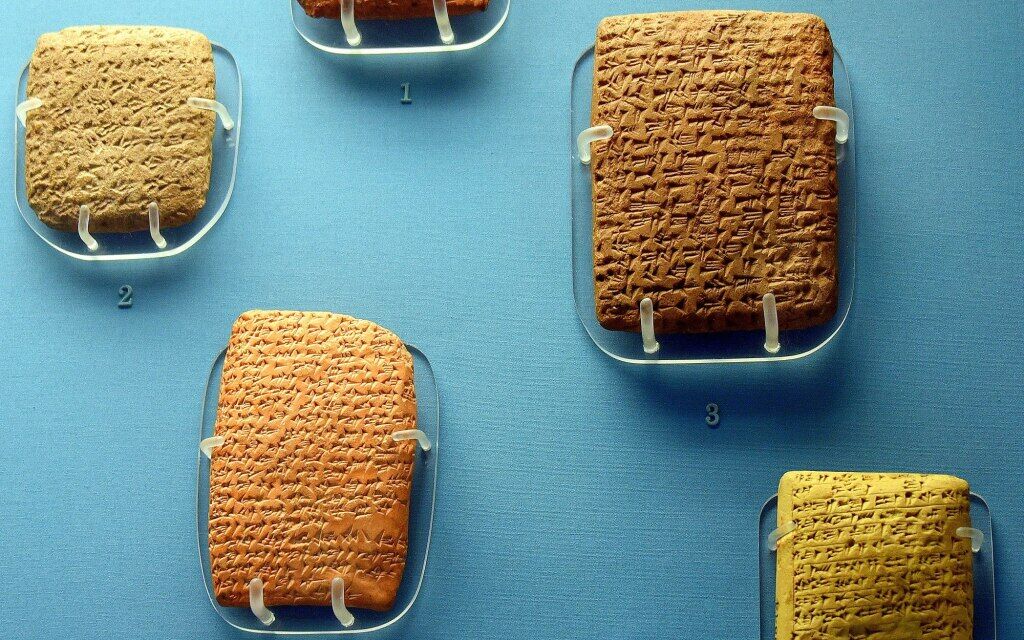"One would think." does not respond to my post.
The Book of Joshua describes the conquest as complete, defeat of all the kings, and brutal killing of all.
Again . . .
Of course, you have to deal with the unresolvable conflicts between the books of the Pentatuch concerning the accounts of the invasion by Joshua. This undermines the credibility of the acounts. You cannot just 'hand wave' away obvious contradiction concerning the Joshua invasion, as well as unresolvable conflicts in the historical reliability of the Pentateuch.
By saying ""The Book of Joshua describes the conquest as complete, defeat of all the kings, and brutal killing of all.""
You are going straight back and doing exactly what I said you do,,,,,,,,,,, ignore those parts of Joshua and then the same thing in the next book, Judges 1, that tell us the conquest was not complete.
Combined we have a picture of Joshua conquering Canaan and bringing peace so that Israel could settle there and have peace, but also that to complete the conquest fully in the various alloted tribal regions was going to need a lot more fighting.
So Israel won places to live and left the rest till later.
Presumably you can read and know that Joshua and Judges tell us of the places that are not conquered but because it looks as if Joshua has overstated the conquest in places and made it look as if the whole of Canaan was completely defeated, you seem to think that entitles you to say that the whole account is not true.
But doing just the opposite, seeing the whole account as true, enables us to align it with archaeology and history.
Avaolutely ridiculous and not comprehendable. Ypu ovject to and misrepresent archaeological evidence and then cite misrepresentations of the evidence.
If archaeology was not a science of opinion there would be no room to come up with other opinions that are as or more plausible.
Yhe letterd are from generals and appointed leaders of occupied Canaan and are rvidence that Egypt ovvupirf Canaan, eith absolutely no reference to an invasion by Joshua,
The letters are Canaan city state leaders complaining that they are being attacked and overrun and Egypt is not helping them as they should.
So Egypt had conquered Canaan but was nowhere to be seen when the Hebrews came in and conquered the individual city states. Your protest that Egypt had conquered Canaan and was there is shown to be wrong by the Amarna letters for this conquest time.
All Canaan knew is that they were being attacked by people they called Habiru,,,,,,,,,,,,,, they did not know of the escaped slaves and the damage they had done in Egypt, or that Joshua was their leader at that time. The archaeology of opinion says the Amarna letters are evidence for the conquest. The minimalist archaeology of opinion does not like that view. Where is your objective verifiable evidence that the conquest is not true?
Unbelievable "personal" conjecture and speculation to justify your agenda, There is no evidence to justify this statement,
Yes that is what archaeology does, speculate about finds and fit them, if possible, with the histories presented by the various nations. The Amarna letters fit Joshua history, both time and place and so it is good to say we have a fit and that the various Canaanite kings did not know exactly who was conquering them,,,,,,,,,,, and this also fits with the ton of evidence that Egypt were big liars when it came to any defeats they had.
Yes, Egypt knew of the Hebrews in the Hills of Judah. So what!?!?!? Egyptian records descriptions of all the tribes and kingdoms in the Levant region, with absolutely no records of the conquest by Joshua. We have no evidence of any written records by Hebrews at the time. All the evidence demonstrates that the Hebrews were a pastoral tribe, without a written language no significant miltary to achieve what is fiscribed as Joshua's conquest of Canaan. Again . . . yes, Egypt had records of defeating the Henrews and capturung slave.
Yes, there is adequate records and wvidence of Eghpt defeating Hebrews and having slaves, but abaolutely no evidence of the scale and description of events in the conflicting texts of the Pentateuch
Again, Egypt are liars about their defeats, Egypt was not there to push back the invading Hebrews according to Amarna Letters, the Hebrews were pastoral tribe/s and did not sit around reading by candle light at night no doubt BUT that says nothing about the education of Moses and a section of the population.
The nomads of Yahweh at the time of the wilderness roaming and in the right area certainly fit the historical records we have from Israel, records by the educated section of the population. For all we know Moses conducted school for the children in the wilderness, so they could read the law he was recording.
But if you want to throw out the written records then you don't really care if archaeology fits them. According to you they were all made up hundreds of years later and no amount of archaeological fit to show they are accurate is going to change your mind.

